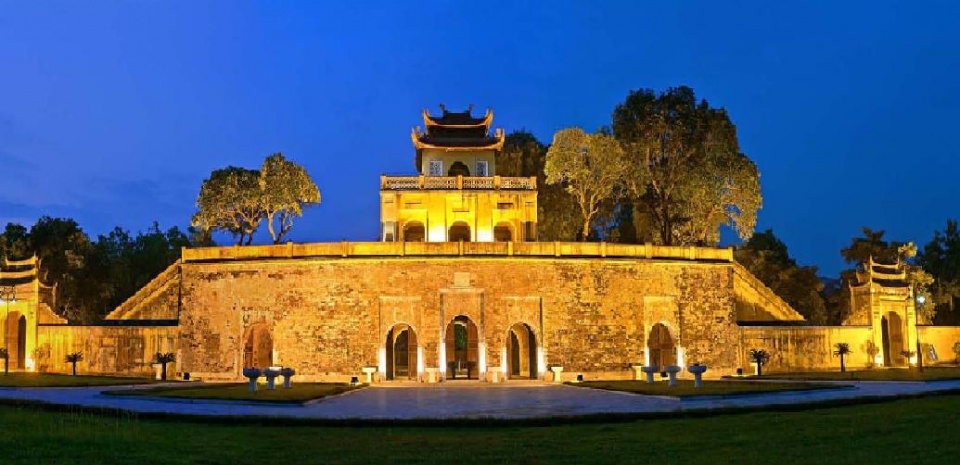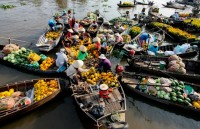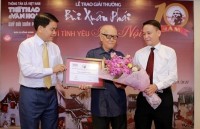
The Dragon City which is no more
Latest
| TIN LIÊN QUAN | |
| Hoi An, a 17th century Vietnamese centre of international trade | |
| Ha Noi values contributions of news agencies | |
The architecture that was ground to dust belonged to the royal dynasties which reigned here from 1010 AD to the beginning of the 19th century. Their capital city bore the regal name Thang Long (Soaring Dragon). Only in 1831, after many trials, was the present name of Ha Noi adopted.
The beginning of the end for the magnificent palaces of Thang Long can be marked from 1802. In that year, Gia Long, the king of a new dynasty, transferred the capital from Thang Long to Hue.
Gia Long’s son, Minh Mang, asked the Emperor of China, his sovereign, to attend his coronation. The Chinese ambassador refused to travel as far as Hue, preferring instead that the ceremony be held in Thang Long, “the only recognized capital.” Minh Mang was forced to travel 700km north to receive his investiture. People said that he took vengeance by destroying all vestiges of royal sovereignty in Thang Long, including the Heavenly Temple and the Royal Palace.
 |
| Thang Long imperial citadel at night. (Photo: hanoibackpackershotel) |
In any case, by losing its position as capital of the kingdom, Thang Long also lost much of its old splendour. The scene of ruins inspired bitter regrets among more than one poet.
In this regard, the eight-stanza poem by the wife of the Thanh Quan District governor remains unsurpassed:
Why has the Creator so upset the human scene?
How many stars have died out, how many seasons of mist have come and gone
The soul of autumn grass haunts the alleys where the carriages passed
Afternoon sunray linger on the walls of old palaces
Stone still holds out against the months and the years,
But water frowns bitterly at all these changes.
In the mirror of centuries, past and present are reflected
How the scene rends my heart!
What the poet did not say is that, before the period which she witnessed, the city of the Dragon had housed many architectural treasures and places of entertainment that were destroyed by fires, palace revolutions, civil wars and the tropical climate.
Memories of Thang Long are evoked in these lines from the British trader Samuel Baron:
"The ruins of the triple walls of the old city and the old palace give a strong hint as to what they had contained in their times of splendour. The Palace alone embraced within its boundaries an area of six or seven square miles. Its marble-paved yards, its gates and the ruins of its housing quarters tell of its old magnificence and make us regret the destruction of one of the most beautiful constructions of Asia.”
The French Jesuit missionary Alexandre de Rhodes (1591- 1660) depicted the pomp of the ceremonies on the occasion of the king's anniversary:
“Some time before the birthday of the King, people brought him gifts from all the provinces in his domain in order to supply the large number of tables which he would order...to cater for a solemn feast...offered on this dale to all officers and soldiers of his army who would be present without faith in full regalia...to swear...loyally to the monarch.”
Huu Ngoc
 | Ha Noi cultural week features Cai Rang floating market Culture of the Cai Rang Floating Market, the national intangible cultural heritage will be a highlight of the Vietnam Ethnic Groups' Unity–Vietnam Cultural Heritage Week ... |
 | Life-long love for Ha Noi The capital city of Ha Noi is well on its way to becoming a modern metropolis. Throughout the historical course of development from autumn 1010 ... |
 | The traditional meals in Vietnam One is reminded of the famous quip by the French gourmet, magistrate Brillat Savarin: “The destiny of nations depends on the way they feed themselves” ... |

















